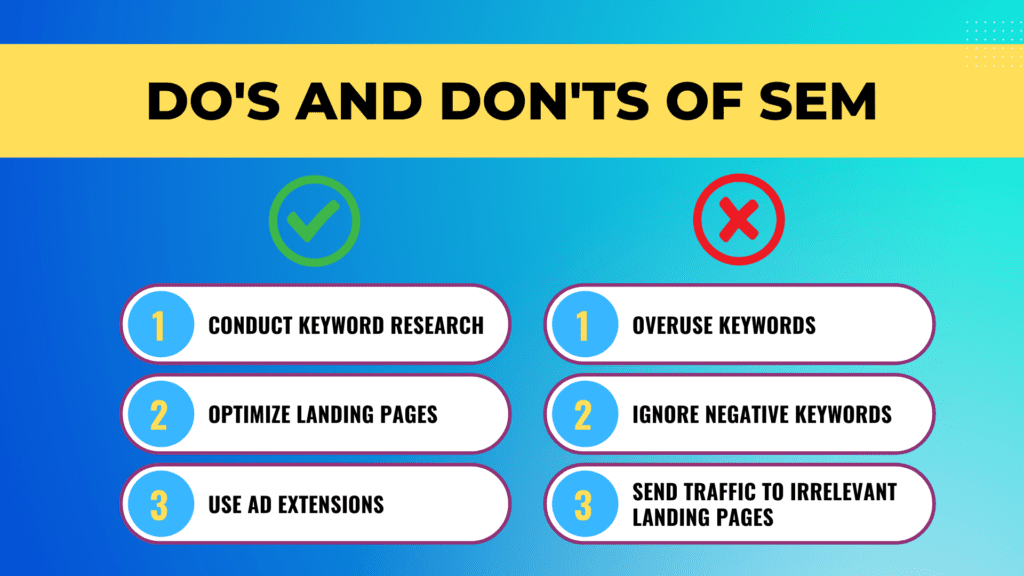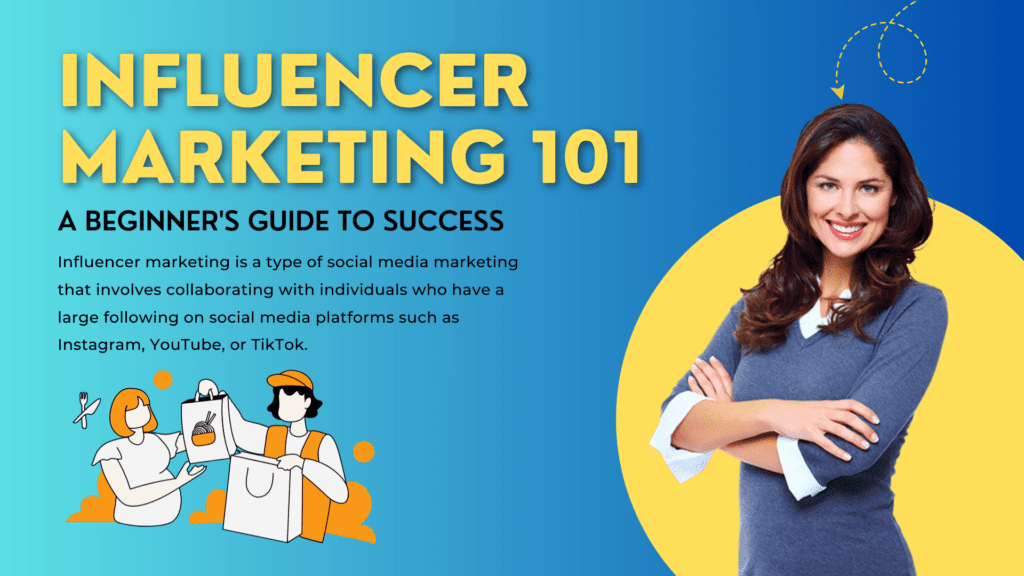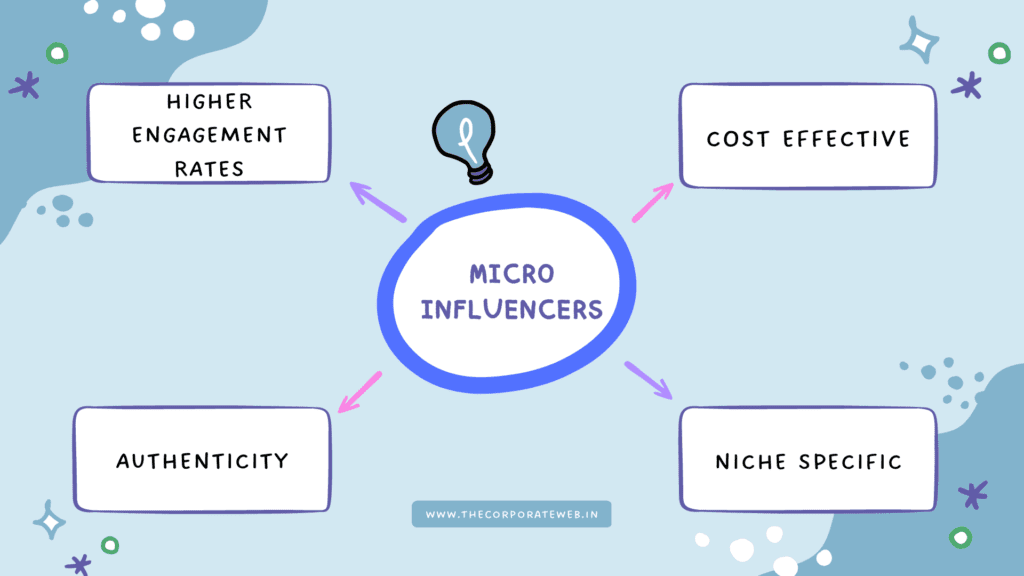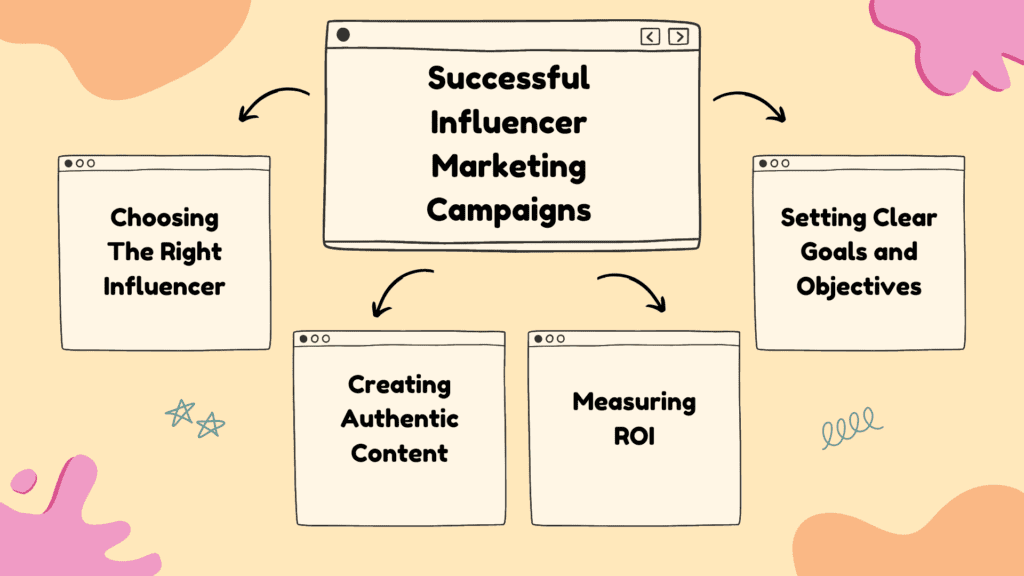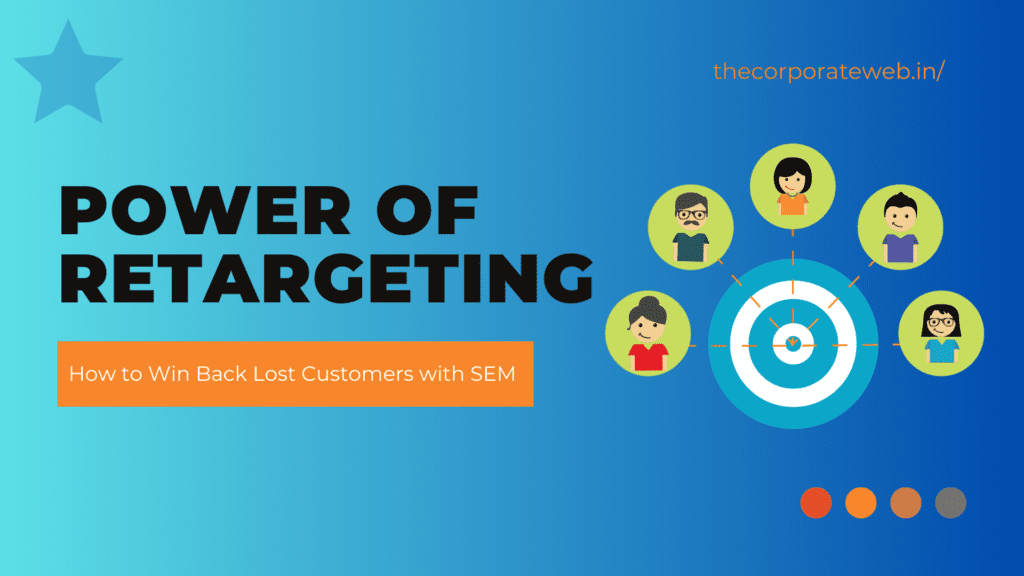Search engine marketing (SEM) is an essential digital marketing strategy to increase the visibility of a website in search engine results pages (SERPs) and drive more traffic to the site.
However, if not done correctly, it can lead to wasted time, effort, and resources. In this article, we will discuss the dos and don’ts of SEM to help you avoid common mistakes and make the most out of your SEM campaigns.
Dos of SEM
1. Conduct keyword research
Keyword research is the foundation of any SEM campaign. It involves identifying the keywords and phrases that your target audience is searching for and using them in your ads. Without proper keyword research, you risk wasting resources on keywords that do not drive traffic or leads.
To conduct keyword research, use tools like Google Keyword Planner, SEMrush, or Ahrefs. These tools provide data on the search volume, competition, and cost per click (CPC) of each keyword.
2. Optimize landing pages
Landing pages are the pages that users land on after clicking on your ads. A well-optimized landing page can increase the chances of users taking the desired action, such as filling out a form or making a purchase.
To optimize landing pages, ensure that they are relevant to the ad copy and contain a clear call-to-action (CTA). Use engaging headlines, persuasive copy, and visually appealing images or videos to capture users’ attention and keep them on the page.
3. Use ad extensions
Ad extensions are additional information that appears below the ad copy, such as phone numbers, addresses, and links to specific pages on your website. Ad extensions can improve the performance of your ads by providing users with more information and making your ads more visible.
Some common ad extensions include callout extensions, site link extensions, and location extensions. Use ad extensions that are relevant to your business and help you achieve your campaign objectives.
4. Analyze and refine campaigns
SEM campaigns require constant monitoring and refinement to ensure that they are performing optimally. Analyze your campaigns regularly and use data to make informed decisions about where to allocate resources.
Some key metrics to monitor include click-through rate (CTR), conversion rate, and cost per conversion. Use A/B testing to compare different ad variations and landing pages and identify what works best for your audience.
Don’ts of SEM
1. Overuse keywords
Using too many keywords in your ads can lead to a low-quality score, which affects the ad’s visibility and increases the cost per click. Instead, use a targeted set of keywords that are relevant to your business and audience.
Use long-tail keywords that are more specific and have lower competition. This approach can help you reach a highly targeted audience and lower your cost per click.
2. Ignore negative keywords
Negative keywords are the keywords that you want to exclude from your campaigns. They prevent your ads from showing up for irrelevant search terms and improve the overall quality of your traffic.
To identify negative keywords, use tools like Google Ads Keyword Planner, SEMrush, or Ahrefs. Monitor your search terms report regularly and add negative keywords as necessary.
3. Send traffic to irrelevant landing pages
Sending traffic to irrelevant landing pages can result in a high bounce rate and low conversion rate. Ensure that your landing pages are relevant to the ad copy and provide users
4. Set it and forget it mentality
SEM campaigns require ongoing optimization to deliver the best results. Setting up a campaign and forgetting about it can lead to wasted resources and missed opportunities.
Regularly monitor and optimize your campaigns to ensure that they are performing optimally. Use data to identify underperforming ads or keywords and make changes accordingly.
Conclusion
SEM can be a highly effective way to increase the visibility of your website in search engines and drive more traffic and leads. However, it’s important to avoid common mistakes and follow best practices to get the most out of your SEM campaigns.
Conduct keyword research, optimize landing pages, use ad extensions, and analyze and refine campaigns to achieve the best results. Avoid overusing keywords, ignoring negative keywords, sending traffic to irrelevant landing pages, and having a set-it-and-forget-it mentality.
By following these dos and don’ts of SEM, you can achieve better results, improve your ROI, and grow your business.
Read More: Understanding User Intent For Better Search Engine Marketing
FAQs Related To Dos and Don’ts of SEM
What is SEM, and why is it important?
SEM is a digital marketing strategy that involves using paid advertising to increase the visibility of a website in search engine results pages. It’s important because it can drive more traffic to a website, increase brand awareness, and generate leads and sales.
How can I conduct keyword research for my SEM campaigns?
You can use tools like Google Keyword Planner, SEMrush, or Ahrefs to conduct keyword research. These tools provide data on the search volume, competition, and cost per click of each keyword.
What are ad extensions, and how can I use them?
Ad extensions are additional information that appears below the ad copy, such as phone numbers, addresses, and links to specific pages on your website. You can use ad extensions that are relevant to your business and help you achieve your campaign objectives.
Why is it important to monitor and refine SEM campaigns regularly?
SEM campaigns require ongoing optimization to deliver the best results. Regular monitoring and refinement can help you identify underperforming ads or keywords and make changes accordingly.
How can I avoid common mistakes in SEM campaigns?
You can avoid common mistakes in SEM campaigns by following best practices, conducting keyword research, optimizing landing pages, using ad extensions, and analyzing and refining campaigns regularly.
Read More: The Do’s and Don’ts of SEM
